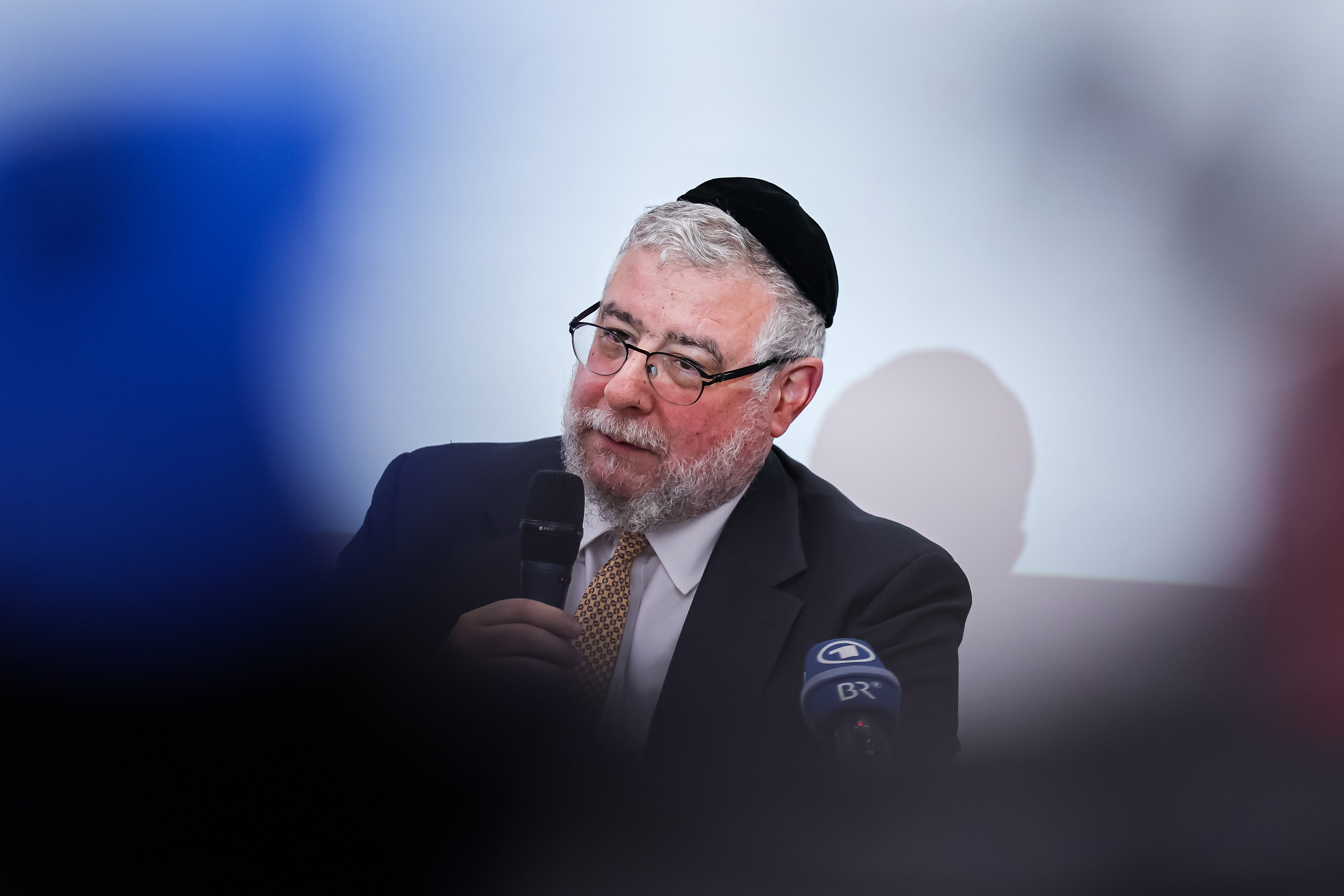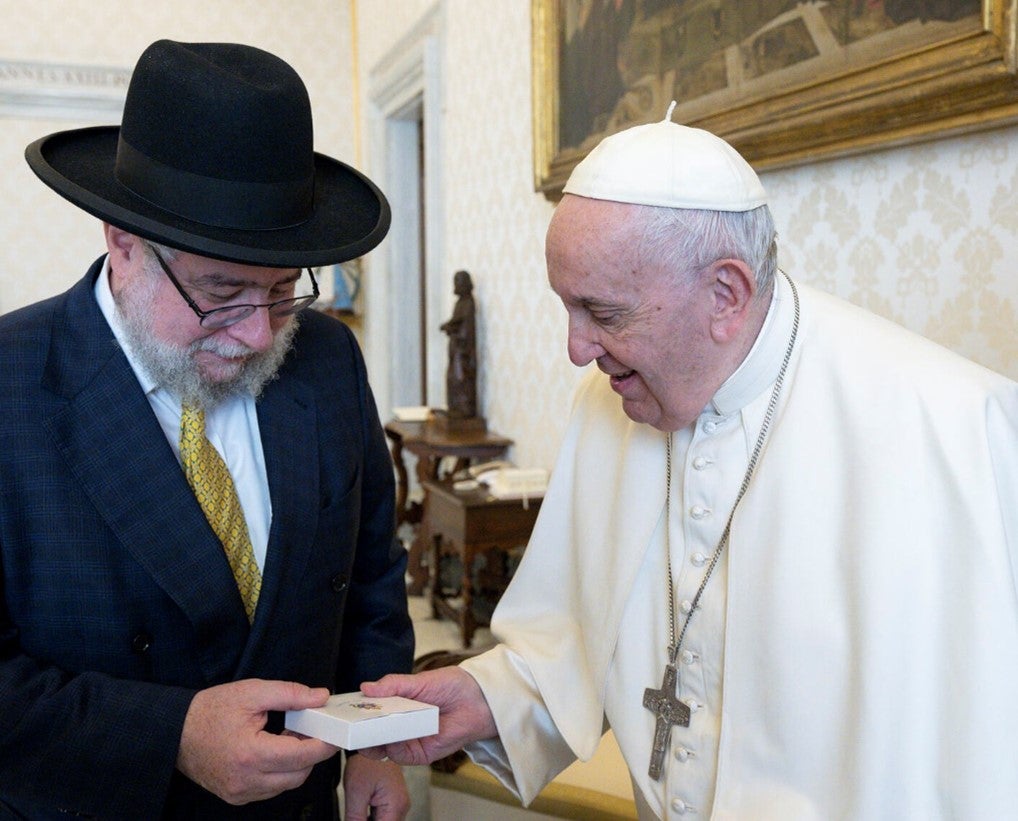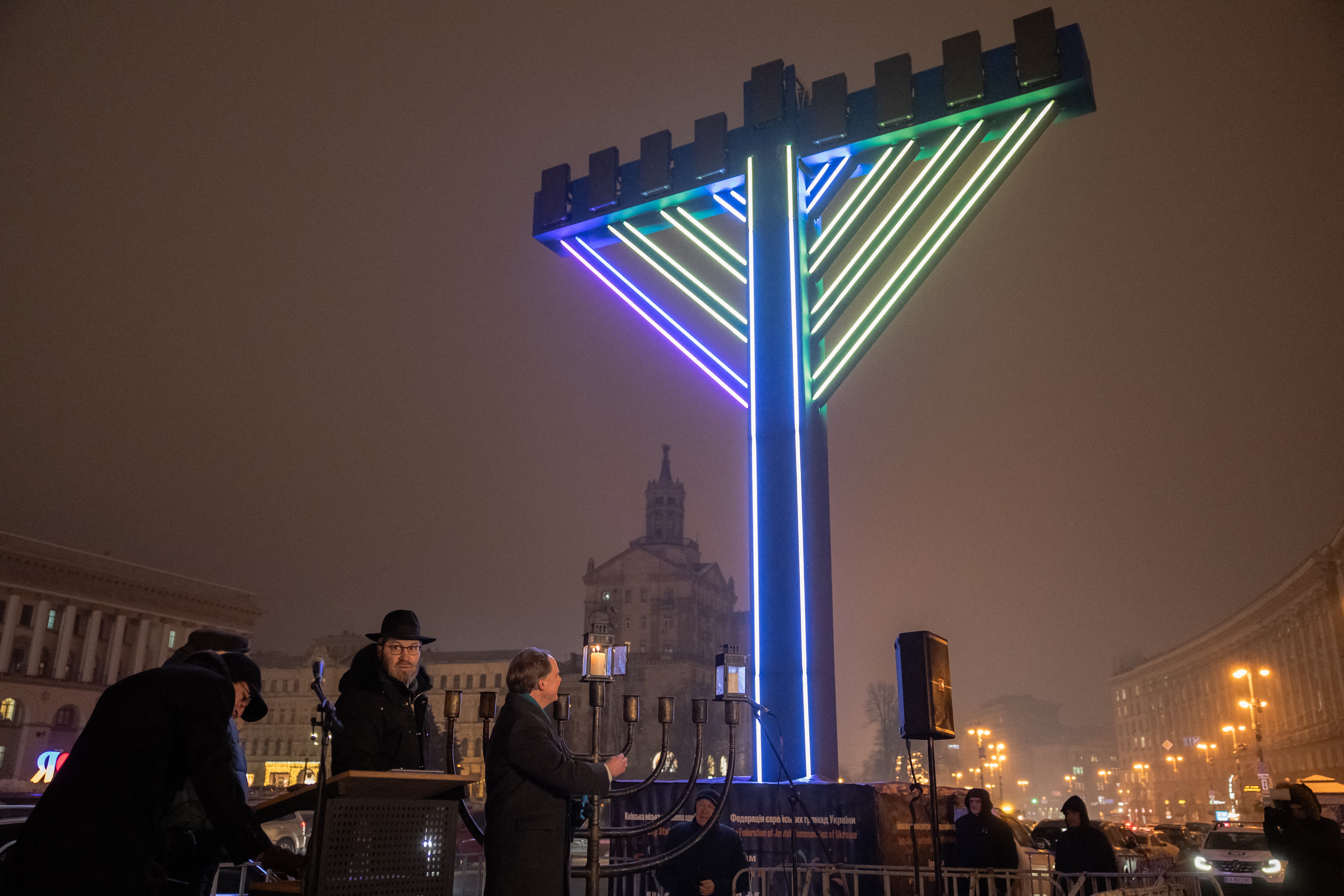‘The Kremlin tried to recruit me – but when I condemned the war, I was forced into exile’
Pinchas Goldschmidt, the chief Rabbi of Moscow, witnessed first-hand the rise of Putin, writes Adam Luck. Now that he’s fled the country after criticising the Ukraine war, he has a stark warning for the West – the Russian leader has his sights set on more than just Kyiv...

When the chief rabbi of Moscow was summoned by Putin’s FSB agents to Sadovnicheskaya Street police station in 2003, they had one goal: to turn him into a Russian agent.
Rabbi Pinchas Goldschmidt, who had been chief rabbi for the previous decade, was able to resist the Russian state in their efforts to turn him. But when Russia invaded Ukraine two years ago, his time was up.
Having refused to endorse the war, Rabbi Goldschmidt fled, first to Hungary and then Israel, urging other Jewish people to leave Russia while they could. He was designated a “foreign agent” by the Kremlin for his criticism of Putin, whose rise he had witnessed at close quarters.
He says: “I want to be able to look my grandchildren in the eye and tell them what I did during these times. What is happening is a catastrophe for both Ukraine and for Russia. It is impossible to support this war. That is why I felt I had no alternative but to speak out.”
Now exiled in Jerusalem, the 60-year-old Rabbi finds himself watching on as the Middle East and Europe are consumed by conflicts that he believes could become conjoined.
The Swiss-born cleric has a unique vantage point after first taking up his post in the old Soviet Union in 1989. He then witnessed its traumatic collapse before Putin’s regime began to take shape.
He recounts these moments among others in his new memoirs, Moscow Memories, which he will be talking about when he visits London this Thursday for Jewish Book Week.
Speaking to The Independent, Rabbi Pinchas says he has been left with no choice but to speak out against Putin’s war, even though he knew it would put him in danger. “Initially in the Jewish community we took the decision we were not going to support the war even though at a certain point we knew the government was going to demand religious leaders do so,” he says.
“On the other hand, we were not going to say anything against it because, in this authoritarian system, it would be dangerous. But as the days passed and we saw the millions of refugees, including tens of thousands of Jewish refugees, we came to the conclusion that being silent was not enough.”

However, when Russia’s religious leaders were then approached by the regime, they were forced to make a decision.
Rabbi Pinchas, mindful that anything he says could be used as a stick by Putin to beat the embattled Jewish community with, refuses to explain exactly how he was approached. He says: “The community leadership was approached by representatives of the government. I don’t want to go into details but when you get an order from the government in Putin’s Russia, you know exactly that disobeying will have dire consequences.”
Just days later, on 7 March 2024, Rabbi Pinchas and his wife took their two suitcases and left for Moscow’s Sheremetyevo Airport knowing it was a race against time.
He says: “I was worried that we could be stopped at any time because over the years we have been stopped many times by the FSB and harassed when leaving and arriving in Russia. I had to say that my father was sick and I was visiting him. I could not tell them that I was leaving Russia for good. I only felt I could relax when we got airside.”
It is a blatant absurdity and hypocrisy that the Putin regime is in effect accusing the Ukrainians of being Nazis and yet their own policies could be seen as antisemitic
But Rabbi Pinchas is no stranger to conflict since he arrived in Moscow as a callow 25-year-old in order to carve out a role for the oppressed Jewish community in the dying embers of the USSR. Nor has he been a stranger to the rise of an obscure officer with the KGB and then FSB, Vladimir Putin.
Rabbi Pinchas says: “I was with a delegation of American Jewish leaders meeting various officials at the Kremlin in 1998 when Putin walked in unannounced. He was the head of the FSB then. We were discussing world issues such as China and he played his part. He made his views known: it was an interesting debate.”
Just two years later, Putin became Russian president. Rabbi Pinchas says: “With his election, he benefited from the surge in oil prices, because the Russian government was on the verge of bankruptcy. At that stage, he vowed to restore law and order. On the one side, the Jewish community benefitted from the rise in wealth, a new emerging middle class, and many successful Jewish businessmen. But on the other hand, there was this retreat from democracy and that became more and more of a problematic issue for the Jewish community as well as the wider society.”
After Rabbi Pinchas refused to become an informant, he was expelled from the country in 2005 but within months had secured his return passage after meeting Silvio Berlusconi.

He said: “Everybody got involved in lobbying for my return but when I met Berlusconi with a delegation of rabbis, one of them turned to Berlusconi and explained my situation. [He] said ‘OK, I’m ready to speak to my friend, Vladimir, but why don’t you stay in Rome, the weather is better?’ I thought that the food is better too. The next day I had my Russian visa.”
In 2007, Rabbi Pinchas once again found himself in the Kremlin’s official meeting room, this time with a delegation of leading European rabbis and meeting Putin. “I have met many presidents and prime ministers as part of delegations and one of the usual signs you can see about the nature of the regime is when you are waiting for the leader to arrive. You can see if the aides and ministers are engaging in small talk with our delegation. But I remember coming into the official Kremlin meeting and it was a deathly silence.”
Rabbi Pinchas believes that Putin cultivated the Jewish lobby because the Second World War (or The Great Patriotic War as it’s known in Russia) was central to his thesis on Russian nationalism.
The irony is that Putin now tries to use the legacy of the Second World War as justification for fighting the “Nazi” regime in Ukraine. “It is a blatant absurdity and hypocrisy that the Putin regime is in effect accusing the Ukrainians of being Nazis and yet their own policies could be seen as antisemitic.

“For 30 years you have had a thriving Jewish community in Ukraine. Show me another country, which is governed by Nazis, that have a thriving Jewish community. It is just part of the propaganda tools of the Russian government to justify this terrible aggression against Ukraine.”
The exiled chief rabbi believes that Europe and the West have no choice but to prepare for the worst if it is to hope for the best. He says: “Europe has to be able to defend its borders with an army or armies if it is to retain its superpower status. We can be 100 per cent certain that Ukraine is not going to be the last war.
“That means Europe has no choice but to arm itself because the other variable is the US. In the past, Europe has always relied on the US but if Trump is elected it may have to rely on itself.” But Rabbi Pinchas, in his role heading up the Conference of European Rabbis, is also fighting the rise of antisemitism in Europe as the flames begin to lick ever higher in the Middle East. He is increasingly worried that they could spread beyond the region.
He says: “There is already a wider war in the north with Hezbollah and with the Houthis in Yemen. There is no question that what is happening in the Middle East will have consequences, not only for the Middle East, but the rest of the world as well. It is the old-world order that is being attacked.”





Join our commenting forum
Join thought-provoking conversations, follow other Independent readers and see their replies
Comments